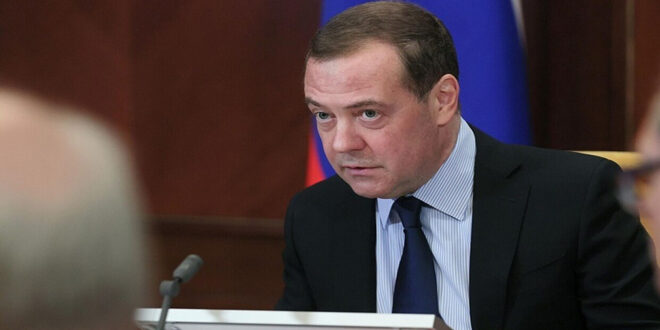Deputy Chairman of the Russian Security Council Dmitry Medvedev announced that Russia did not plan a long-term increase in military spending under the special operation, noting that this increase came in response to the current situation.
“We did not plan this in the long term,” by Novosti news agency quoted Medvedev as saying in response to a question about whether there was significant funding planned for the production of military equipment in Russia, adding: Any military action requires a review of the state budget, and it is natural that more funds be allocated for military spending.
Medvedev noted that Russia’s budget retains all the social obligations that existed before the start of the special military operation and the budget is still focused on achieving the country’s development goals.
In turn, Russian Minister of Economic Development Maxim Reshetnikov said: Inflation in Russia peaked in early July and is now slowing down, and this process will continue next year, so the indicator should reach the target level in 2026.
Russian Prime Minister Mikhail Mishustin announced last September during a government meeting that the Russian Federal Budget revenues will rise by 12 percent in 2025 to 40.3 trillion rubles, and that expenditures will reach nearly 41.5 trillion rubles.
Western countries are seeking, through the material, military and political support they provide to Kiev, to obstruct the goals of the Russian special military operation in Ukraine, but Moscow has confirmed on more than one occasion that military operations in Donbass will not stop until all tasks assigned to it are achieved.
Inas Abdulkareem

